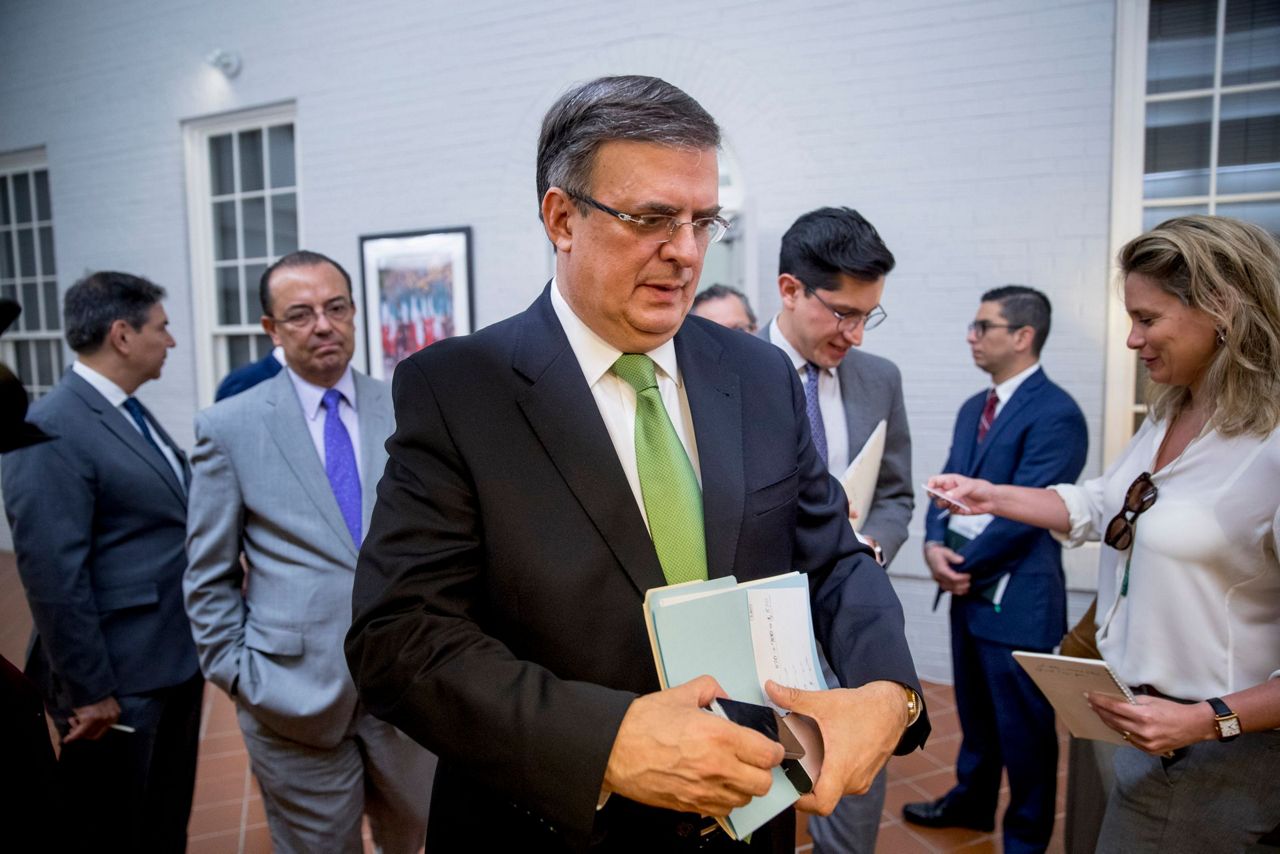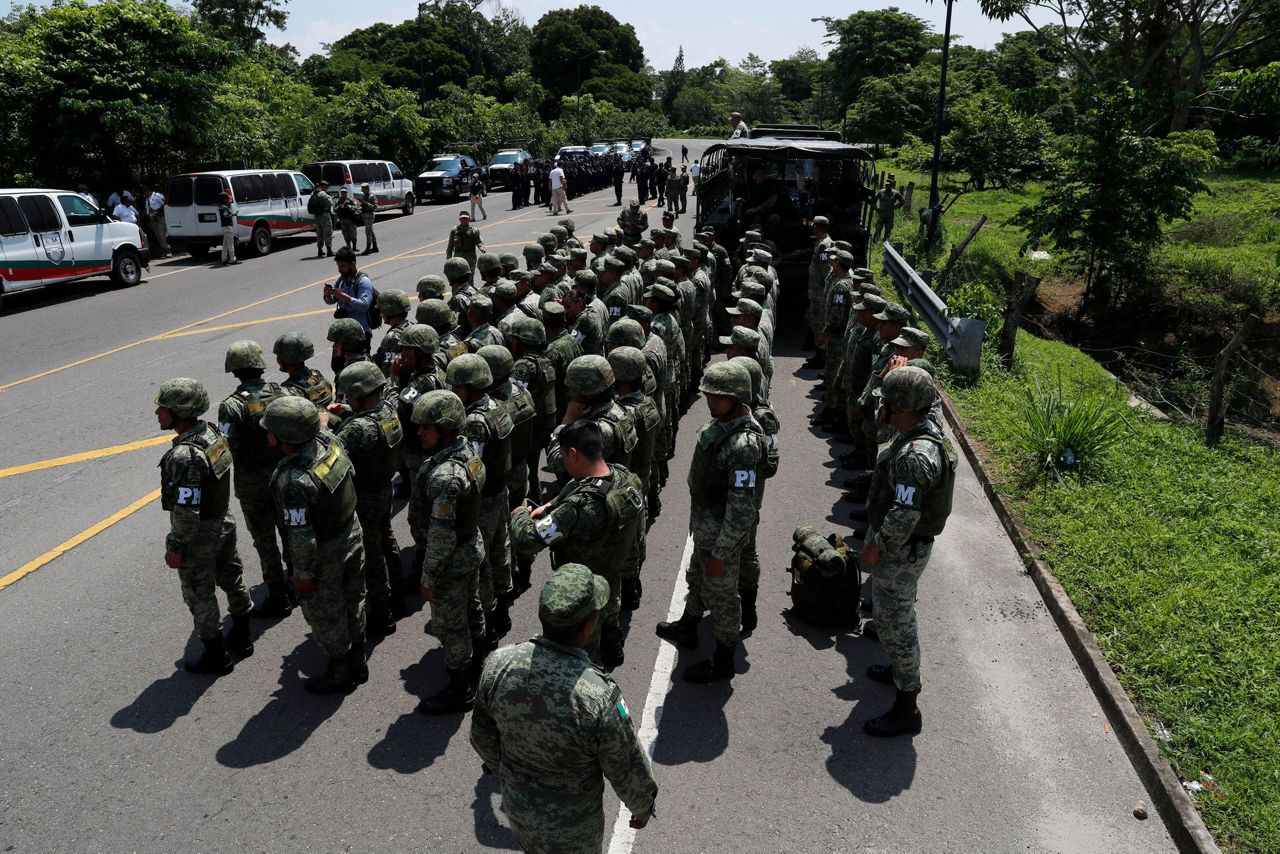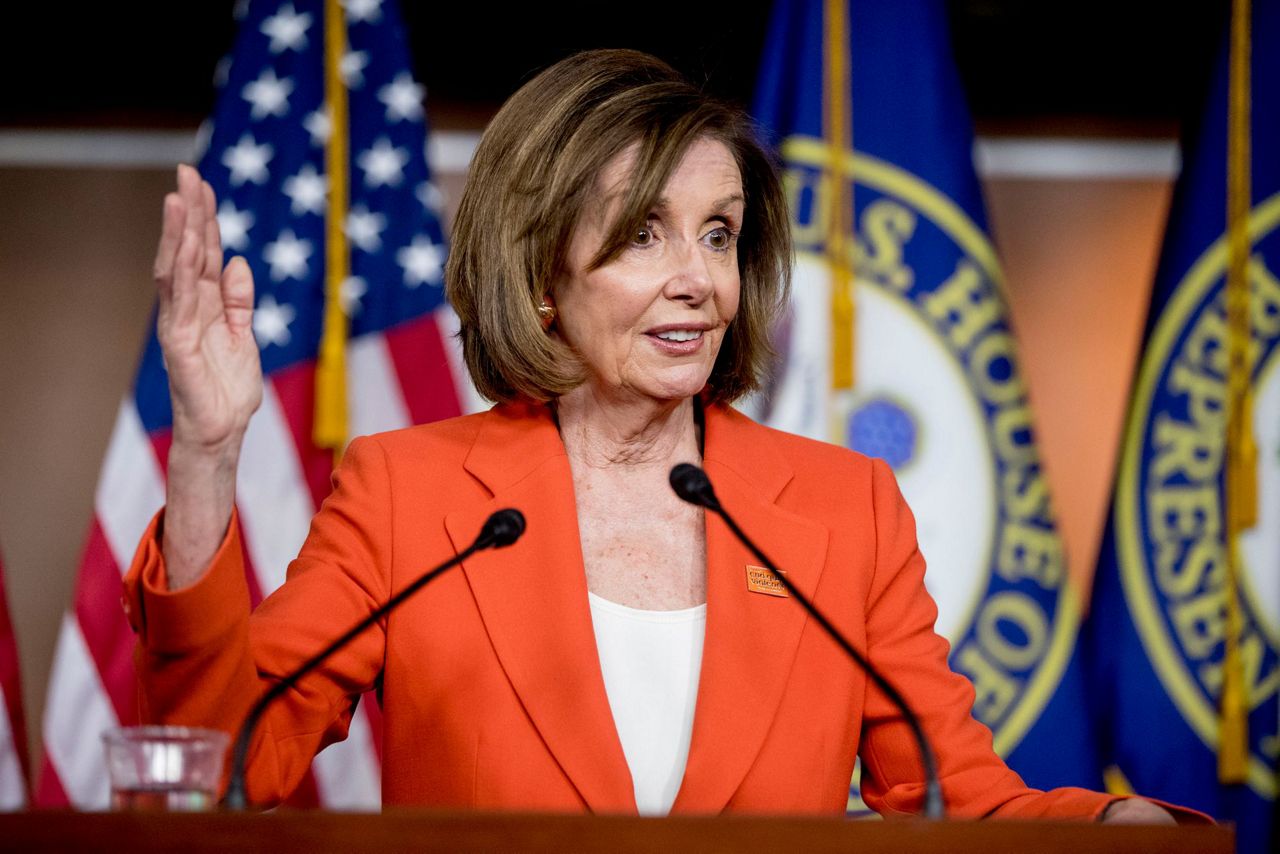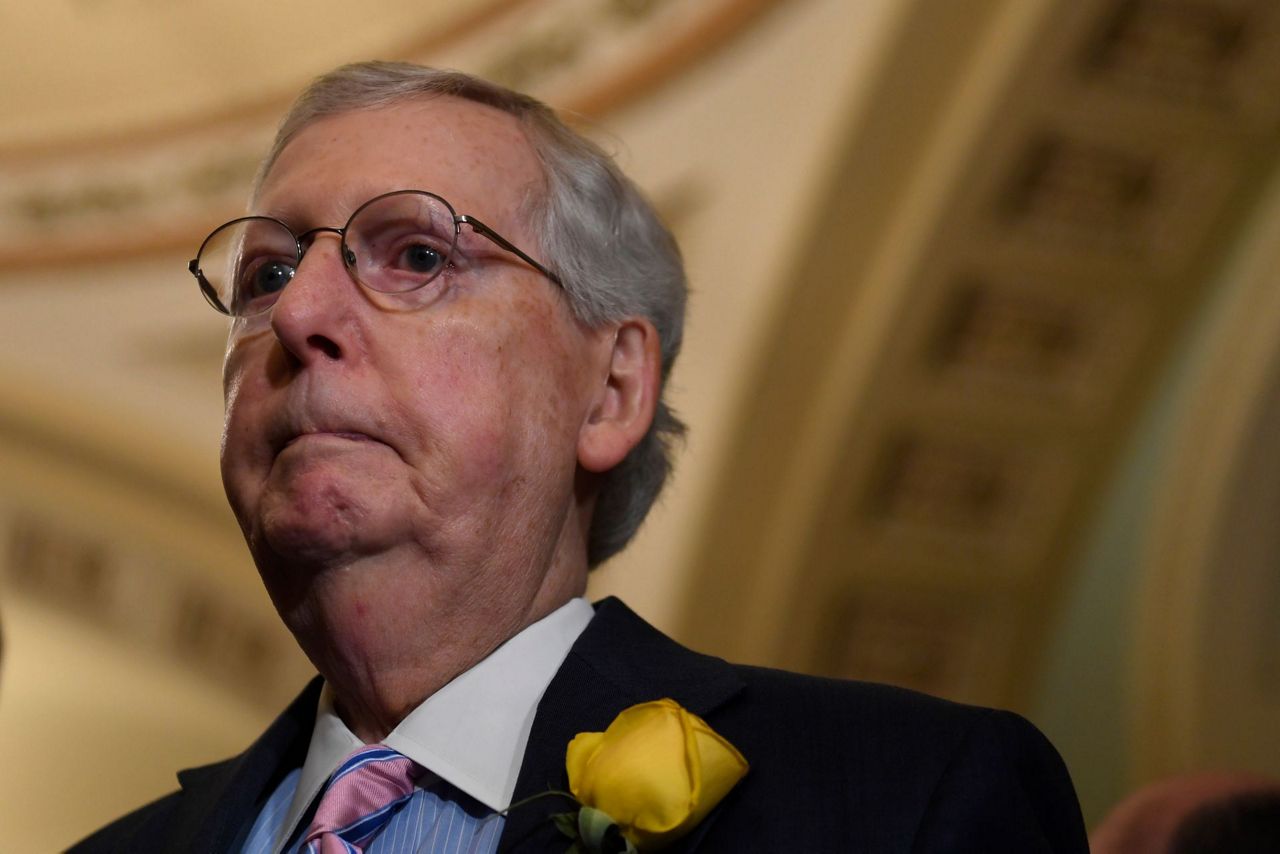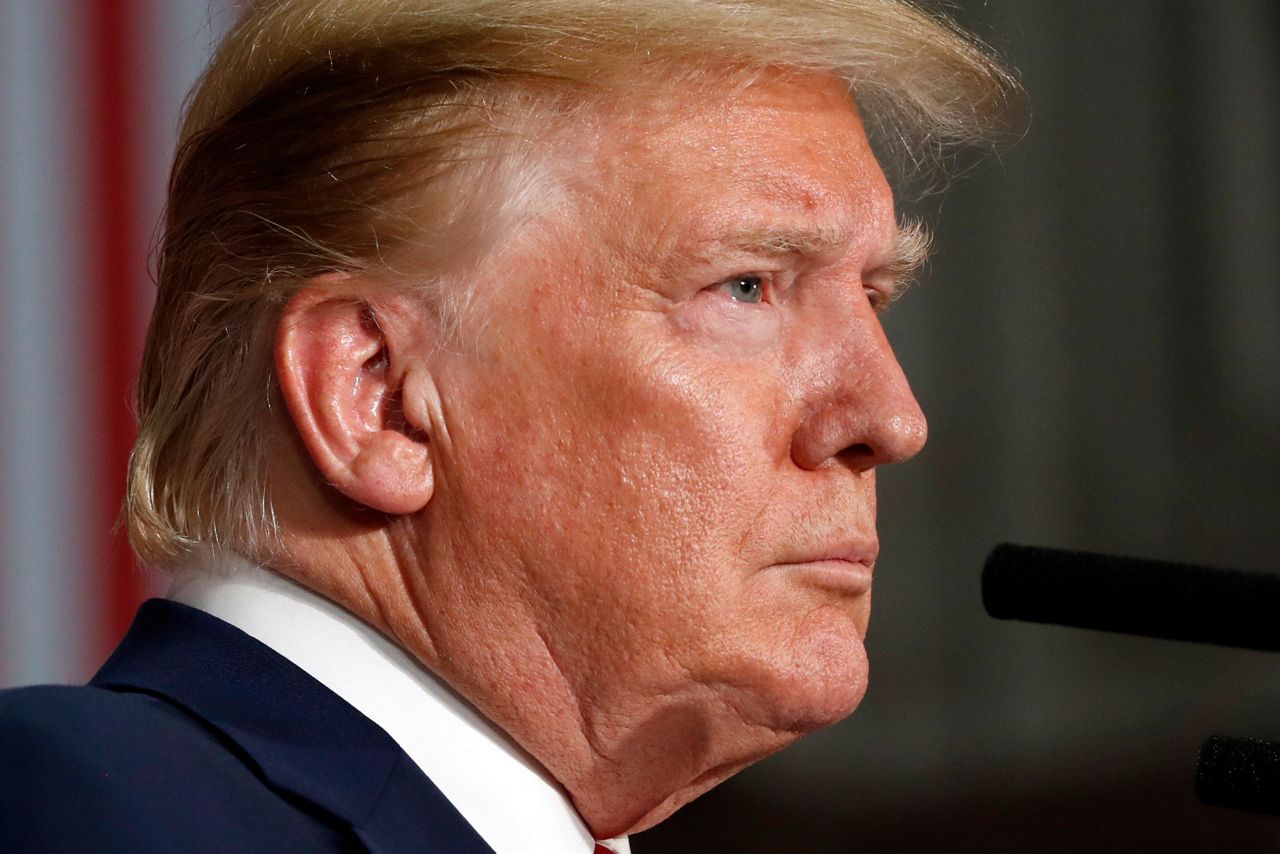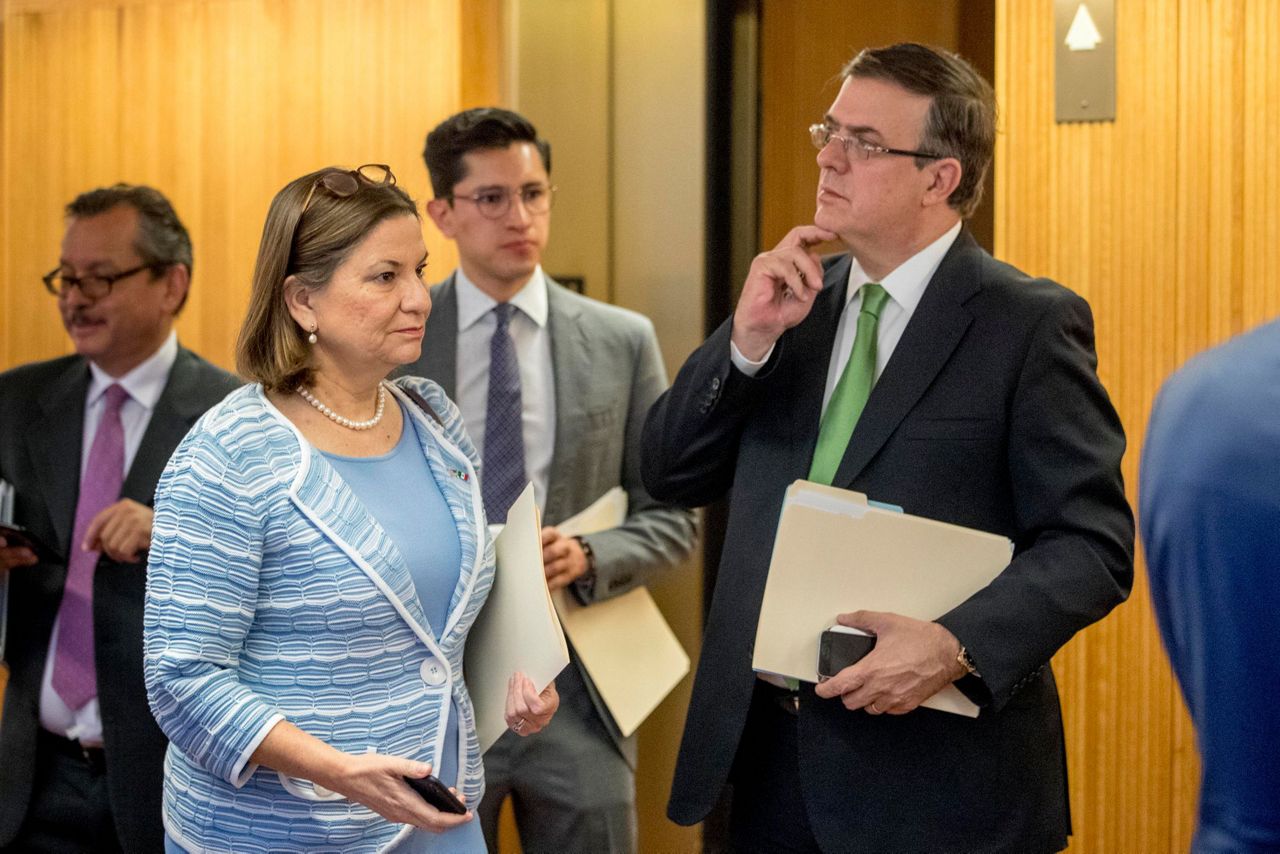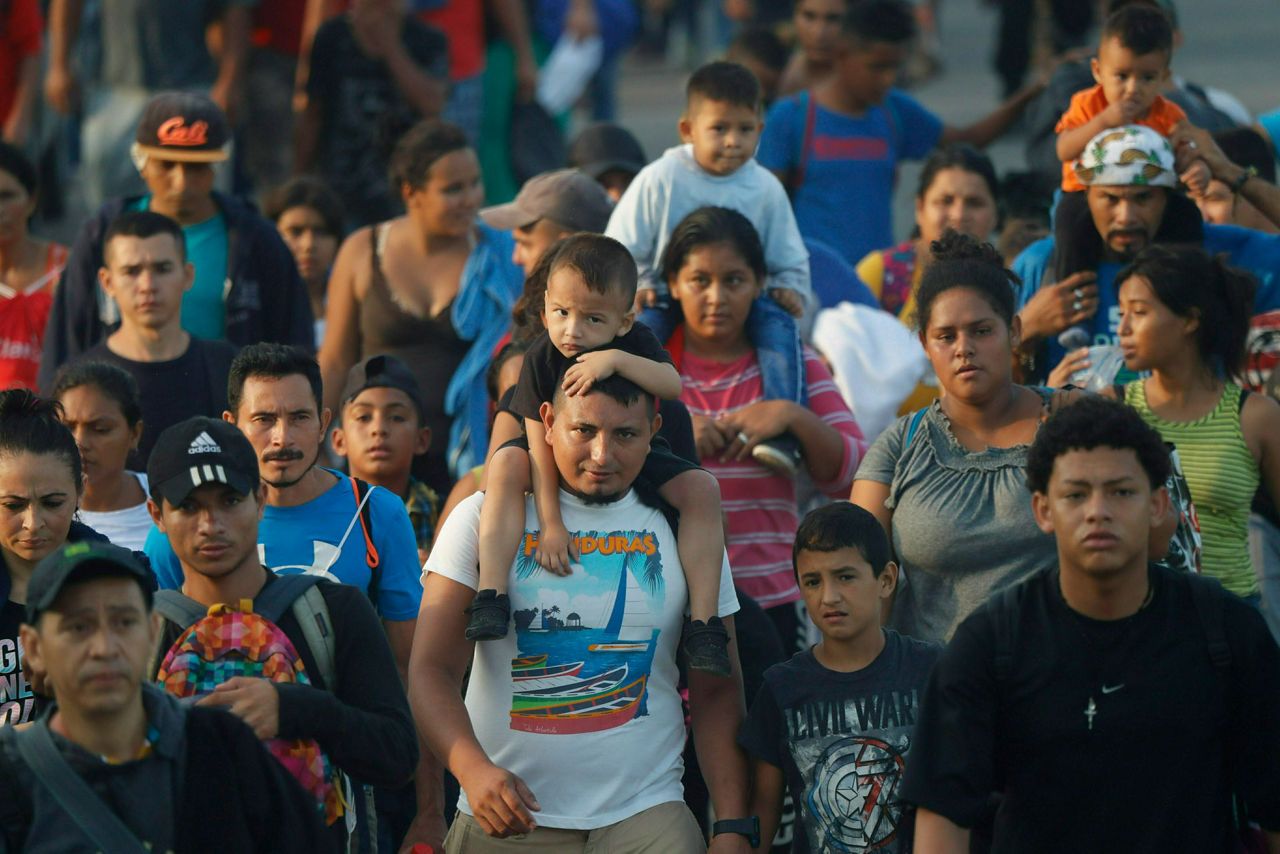WASHINGTON (AP) — White House officials downplayed expectations ahead of the high-level, face-to-face meeting Wednesday between the U.S. and Mexico over President Donald Trump's threatened tariffs on Mexican goods flowing into the United States.
The first tariffs — 5% taxes on imports from Mexico — are to go into effect next Monday barring an agreement that has seemed increasingly unlikely despite continuing negotiations as well as stiff opposition from many of Trump's fellow Republicans in Congress.
The U.S. delegation to Wednesday's talks, led by Vice President Mike Pence, was ready to listen to Mexico's ideas for meeting Trump's demands that the country step up its efforts to halt Central American migrants from making their way to the U.S. border, according to two officials, who spoke only on condition of anonymity ahead of the private meeting at the White House.
But they said they did not expect a deal that would stop the tariffs.
However, White House trade adviser Peter Navarro said in an interview with CNN that there were commitments Mexico could make to avoid the tariffs, which he said "may not have to go into effect precisely because we have the Mexicans' attention."
And Republican Chuck Grassley of Iowa, chairman of the Senate Finance Committee, told reporters the Mexicans were putting proposals on the table that he expected would resolve the standoff.
"There's not going to be any tariffs," Grassley said. "They got a long list of things they're going to offer to us, and it will preclude tariffs going into effect."
The tariffs carry enormous economic consequences for both countries, and politically they underscore a major ideological split between Trump and his party. Trump has increasingly relied on tariffs as a bludgeon to try to force other nations to bend to his will, dismissing warnings, including from fellow Republicans, about the likely impacts on American manufacturers and consumers .
House Speaker Nancy Pelosi, a California Democrat, warned on Wednesday that the proposed tariffs, which could eventually rise to 25 percent, would be "punishing" for both the U.S. and Mexico.
While some have suggested the president, who is currently traveling in Europe, is not serious about going through with his threat, he insisted in a tweet Tuesday that he was not "bluffing" and told reporters the tariffs were "more likely" than not to take effect.
Administration officials have said Mexico can prevent the tariffs by securing its southern border with Guatemala, cracking down on criminal smuggling organizations and entering into a "safe third country agreement" that would make it difficult for those who enter Mexico from other countries to claim asylum in the U.S.
The U.S., however, has not proposed any concrete benchmarks or metrics to assess whether the U.S. ally is sufficiently stemming the migrant flow from Central America. And it is unclear whether even those steps would be enough to satisfy Trump on illegal immigration, a signature issue of his presidency and one that he sees as crucial to his 2020 re-election campaign.
Meanwhile, on Capitol Hill, Republicans in Congress have been threatening a rare confrontation with Trump, warning the White House Tuesday that they are ready to stand up to the president to try to block his tariffs, which they worry would spike U.S. consumer costs, harm the economy and imperil a major pending U.S.-Mexico-Canada trade deal .
At a lengthy closed-door lunch meeting at the Capitol, senators took turns warning Trump officials there could be trouble if the GOP-held Senate votes on disapproving the tariffs.
Senate Majority Leader Mitch McConnell said Tuesday with understatement, "There is not much support in my conference for tariffs, that's for sure."
"Deep concern and resistance," is how Sen. Ted Cruz of Texas characterized the mood.
It is unclear, however, whether they have the votes to stop Trump, and he said they'd be "foolish" to try.
Mexico has been engaged in an all-out lobbying effort this week to try to stave off the tariffs before Trump's June 10 deadline. Mexican Foreign Minister Marcelo Ebrard, who was to meet with Pence and Secretary of State Mike Pompeo at the White House, said Tuesday he thought tariffs could be avoided.
"By what we have seen so far, we will be able to reach an agreement," he said during a news conference at the Mexican Embassy in Washington.
Analysts, however, were not optimistic that the initial phase of tariffs could be avoided.
"Trump has got his new tool and he wants to use it and he will use it, not just because he can. He will use it because it's part of his negotiation tactics," said Duncan Wood, director of the Mexico Institute at the Wilson Center think tank in Washington.
He said Wednesday's talks were likely "just the beginning" of a weeks-long conversation and predicted a tit-for-tat.
"Mexico will offer to do a lot more on migration, but they will also say that they will retaliate against tariffs and a lot of people are going to lose a lot of money," he said.
Tony Wayne, a former U.S. ambassador to Mexico, said the two sides could have a good meeting and reach a deal, but still not satisfy the "wild card" president.
"The tweets have said 'stop everybody' and 'stop drugs.' That would be an impossible task to do in the near term," he said.
The economic stakes are enormous. The 25-year-old North American Free Trade Agreement made trade with Mexico largely duty free. As a result, manufacturers have built up complicated supply chains that straddle the border. Americans bought $378 billion worth of Mexican imports last year, led by cars and auto parts. Mexico is America's No. 2 export market behind Canada.
The back-and-forth could also imperil the NAFTA revamp, which Trump pressured Mexico and Canada to agree to last year. The U.S.-Mexico-Canada Agreement has been signed by all three countries but must be approved by their legislatures.
Trump, speaking to reporters in Ireland Wednesday, said he thinks Mexican officials "want to make a deal" and said he would know more after the meeting.
"Mexico can stop it. They have to stop it. Otherwise we just won't be able to do business," he said. "It's a very simple thing."
___
Associated Press writers Paul Wiseman, Lisa Mascaro, Darlene Superville and Padmananda Rama contributed to this report.
Copyright 2019 The Associated Press. All rights reserved. This material may not be published, broadcast, rewritten or redistributed.



